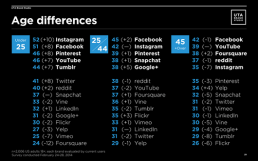The Changing Face of Marketing
And we’re talking serious change. Advertising targeting has been, well, for the most part, about defining your audiences and then finding media that they pay attention to. It’s been that way since we started in this business over twenty years ago.
Even many of the relatively new social media and online advertising models work in much the same way. With Facebook, for example, advertisers select from a variety of personal characteristics that equate to a variety of individuals and then Facebook presents your ad to them.
Facebook thought it could go deeper and deeper with its depth of targeting via more and more boxes to check off. That’s that whole breach of privacy and Big Brother thing. It sounded good to us, being in advertising. The more you know about a target person, rather than a target audience, the better you should be able to speak to the individual with your advertising.
Now, Facebook has begun selling ads in a whole new, very different way that lays waste to the data they have collected on all of us over the years. The new way is called “Re-Targeting”.
New to them anyways, but not so new to many other online ad companies. It makes so much sense in the age of digital and online purchasing.
Here’s how “Re-Targeting” works…
You shop around on the web for some exciting new thing you desire. Let’s say a weight-loss program. You check brands and products all over the web and pretty soon you are seeing weight loss ads everywhere you go.

You have probably experienced that before. Amazon, Yahoo! and Google do it to you on their own sites. The way they know what you are shopping for is via cookies that are dropped into your computer by the weight-loss sellers and these cookies tell the ad servers all about your plans to lose weight. You’ll also be hit by exercise equipment and diet plans and everything that the cookie can tell the ad server that you are potentially shopping for.
The odd thing is that Facebook just recently picked up on it as a new strategy for their ad sales. And these ads are worth much more than the old traditional online ads (“old” these days can be the day before yesterday!) because people click on them a lot more and are actually in need of the product, so they buy a lot more. And re-targeting uses none of that privacy data that Facebook collected on us.
Re-targeting should mean new growth for Facebook, but they are behind the curve. All that data I put onto Facebook doesn’t come close to positioning me as needing a new wrist watch. But my time spent searching the entire web for one sure does.
For more, see Nicholas Carlson’s article on Business Insider.

